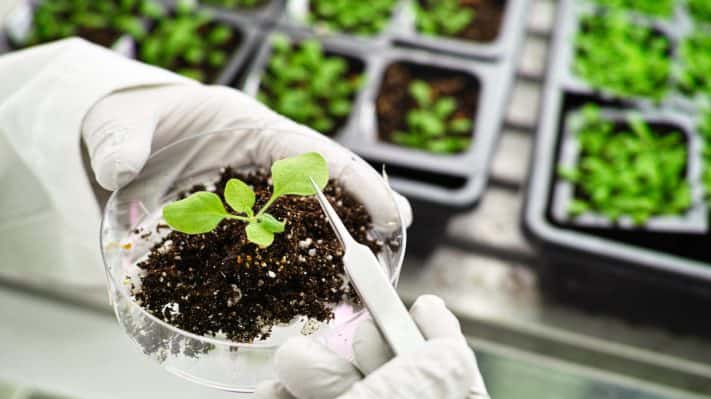Miruku introduces dairy proteins made from plants

Dairy proteins could now be made without animals by applying molecular farming processes to engineer plant cells that will produce proteins, fats, and sugar, among other molecules. This would decrease the reliance on animal agriculture, which has an impact on the atmosphere, soil, and water.
This is introduced by a New Zealand-based food tech company, Miruku. With their experiences in the fields of dairy or plant science, Amos Palfreyman, Ira Bing, Harjinder Singh, and Oded Shoseyov founded the company in 2020. Miruku labs and greenhouses serve as the stage in the programming of plant cells as mini-factories for the production of dairy proteins.
In contrast to its competitors that make dairy in fermentation chambers or use animal cells outside the animal to make dairy materials in cultivation chambers, the Miruku approach is characterized by breeding and engineering new plant crops that would directly produce dairy building blocks.
What is more interesting here, according to CEO Palfreyman, is that these dairy foods from plant protein ingredients would not only be similar to actual dairy in terms of odor and taste. It will also provide equivalent nutrition. Hence, this product could serve as your dairy in baking. They would also have amino acid building blocks necessary to repair and build our bodies.
Production scaling and challenges
The CEO admitted that programming the plant to express the proteins of mammals, which maintain its function and structure, is indeed a challenge.
The process of scaling the plant production simply involves planting the seeds (that express target proteins) in greenhouses or fields. The challenge, however, lies in engineering and breeding of the required traits. This process typically involves a tradeoff between the use of energy and levels of expression. Miruku, however, believes that this part of the scalability equation could be addressed by its use of computational biology and techno-economic analyses in order to model the maximum levels of expression.
The future of dairy proteins made from plants
The commercial market would have to wait for two to three years more before tasting this dairy protein from plants, according to Miruku’s target. Before then, however, the company will be creating prototypes and proofs of concept.
For the first one and a half years, the company was funded by its founders. Currently, however, it has secured seed funding amounting to $2.4 million. The investment was led by Movac. This funding will be utilized to develop partnerships, fast-track development programs, and hire more technology staff. This will capacitate the company to scale and build on for the next milestones, hopefully by 2023. Miruku may be an early-stage company but is gaining traction with the right partners close to the consumer markets.
The company is the first molecular farming dairy startup in the Asia Pacific region, according to Palfreyman. Similar companies are Nobell Foods which is also engaged in molecular dairy farming, and Notco, Climax Foods, and Perfect Day, which focus on animal-free technology.
Read our disclosure page to find out how can you help MSPoweruser sustain the editorial team Read more




User forum
0 messages